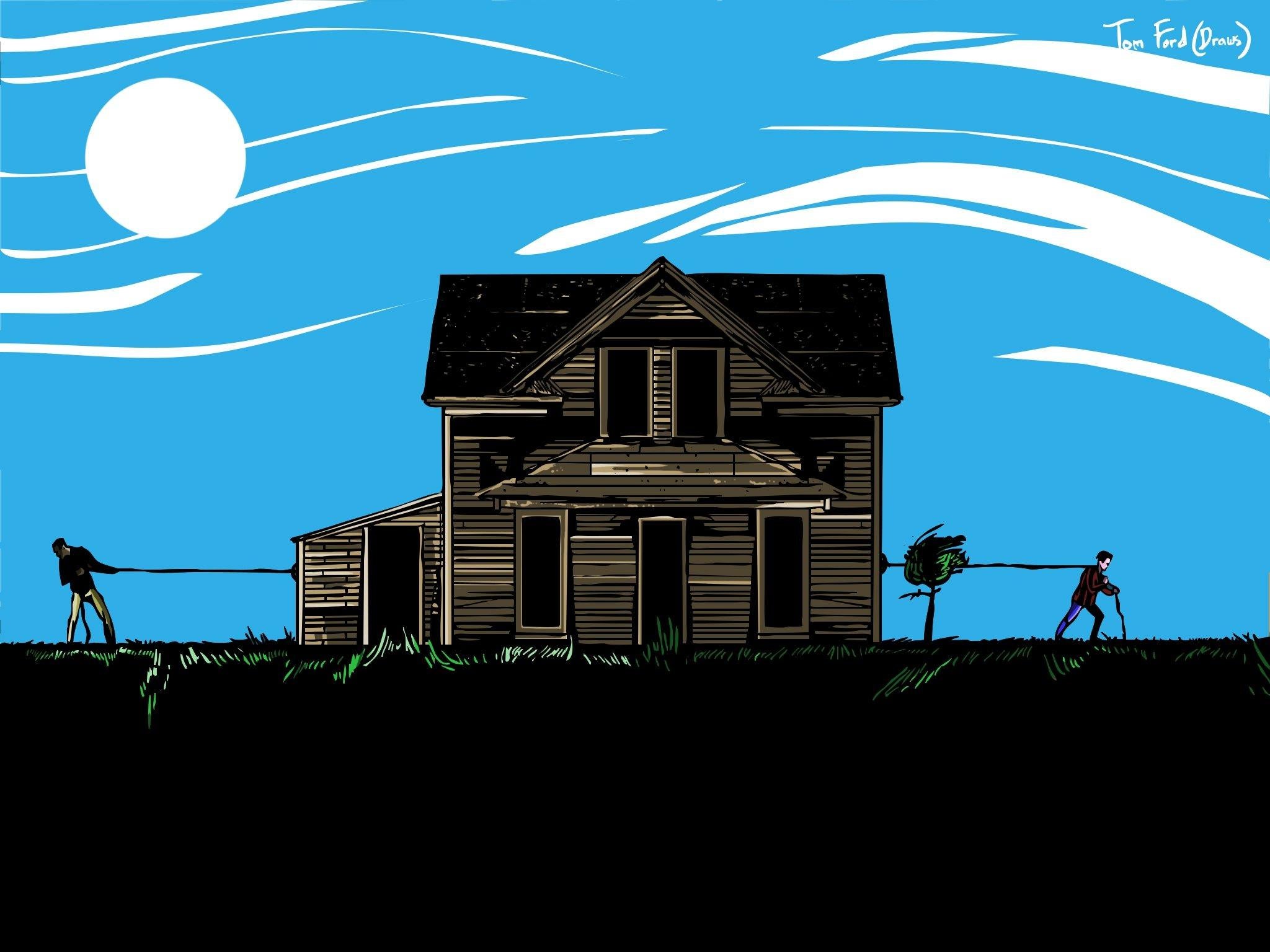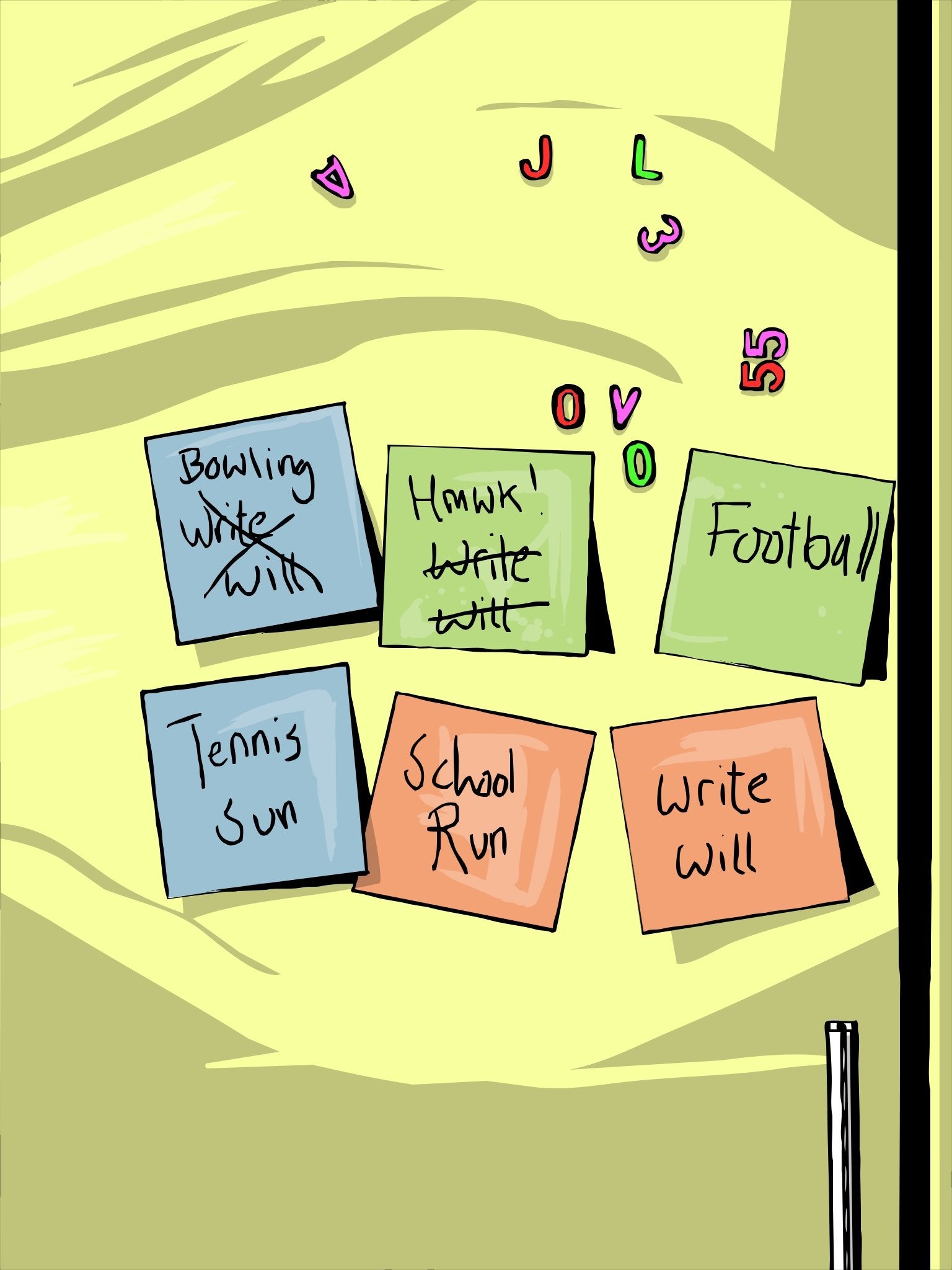You can’t ask me that: Why 'Who's getting the house?' doesn't have to be painful
Continuing her series tackling socially unacceptable questions, Christine Manby challenges the belief that writing a will has to be a gloomy experience


The past few years have been all about the joy of streamlining your life. In 2015, Marie Kondo topped bestseller charts all over the world with her book The Life-Changing Magic of Tidying Up, in which she urged us to declutter by ridding our homes of anything that didn’t “spark joy”. More recently, Margareta Magnusson’s The Gentle Art of Death Cleaning urged us to go one step further and clean our homes as though preparing for death, considering what might spark horror in the children when they have to empty out the attic. Best get rid of those photos of their dad at the furring convention now.
Getting shot of old rubbish is always a good idea, but simplifying your life should go way beyond throwing out CDs and making sure the kids never find Grandma’s bondage kit. Writing a will is the ultimate act of tidying up. However, it seems we’re more likely to spend time working out how to make our pants balance vertically in a drawer than thinking about how our joy-sparking stuff will be split when we’re gone.
As of last year, it’s estimated that 60 per cent of British adults do not have a will, which means more than 30 million Brits are in danger of dying intestate. It’s fair to say it won’t matter much to them. But for the people left behind, it can be a serious headache.
Under the rules of intestacy in the UK, only spouses, civil partners and other close relatives can inherit, which means if you’re cohabiting without a will, you’re in danger of seeing (or not seeing, since you’ll be dead) all your worldly goods go to some distant cousin instead of the one you love.
The most common reason people give for not having written a will is that they’re planning to do it later. But the fact that one in four people over the age of 55 doesn’t have one suggests that not all of those people waiting for the right time are going to get round to it. A further 20 per cent of those questioned by Prudential didn’t think they had enough assets to make writing a will worthhile. Some thought getting a will drawn up would be too expensive. It’s not. October is Free Wills Month, with charities such as Age UK, Diabetes UK and Guide Dogs offering supporters a chance to have a will written or revised completely free of charge.
There are also those people who think that by writing a will, they’ll be tempting fate. I have a friend who actually sticks his fingers in his ears and sings “la la la” at the very mention of the subject.
“I just don’t want to think about death,” he says.
I would argue that thinking about death is a good way of thinking more deeply about life.
Recently, while waiting to see a consultant about a suspicious-looking breast lump, I decided it was time to revisit my own will. If my number was going to be up sooner than I thought, then I wanted to be sure I had everything in place.
There were some boring practicalities to be considered first, to make sure nobody ended up suddenly homeless, but after that it got more interesting. I don’t have children but I do have a host of nephews and godchildren. What gifts could I leave for them? It was fun to consider their individual styles and tastes. They’re all so very different. One’s an athlete, another’s an artist, a third is an animal-loving bookworm with an aversion to the songs of Mariah Carey (a girl after my own heart). I asked myself what we’d bonded over? More importantly, what would the young people I loved actually want from the pile of stuff I’ve accumulated over the course of my life so far?
Far from being a gloomy experience, thinking about my will brought me a sense of calm, gratitude and abundance. It reminded me that I have plenty of “stuff”. I also have lots of people around me who make life very much worth living. It made me realise I need to make an effort to spend more time with them while I still can. It was, to put it Marie Kondo-style, if not quite life-changing then definitely life-affirming.
Funerals are another one of those things that we don’t often plan for, which is perhaps why they can end up seeming homogenous. Half an hour down the crem. Pine casket. A couple of hymns. How do you work out what you need to say goodbye properly?

There is a shocking lack of transparency in the process of arranging a funeral. Funeral directors have it pretty much stitched up. Once they’re in your house with their clipboard, they’ve all but got your custom. However, the process has as much in common with buying a car or a kitchen. Yes, you can have a new kitchen for two grand but it won’t have door handles or work tops. The headline price of a funeral disguises some truly shocking hidden costs.
Who’s going to say “no” when asked “would you like your loved one to be dressed in their own clothes?” or “are there any personal items you would like to go into the casket alongside them?” It’s not until later that you find out these are extras. Dressing the body or even slipping a letter in alongside it can cost hundreds of pounds.
Asking how much everything is likely to cost seems petty when you’ve suffered the shock of bereavement. Who shops around when they’re deep in grief? That’s why you need to shop around before you require their services. Beware, however, of those pay by instalment funeral plans, many of which turn out not to cover the costs they’re intended for. Better to stick the money that might be needed into an ISA. Then leave specific instructions. Choose your casket. Pick out your hymns. Specify which version you want so that the congregation don’t end up mumbling along to a tune they’ve never heard before (it turns out there are a great many versions of many popular hymns). And after the service? If you want to have your ashes cast somewhere special, it’s a good idea to make sure it’s allowed.
Thank goodness, the breast consultant I was waiting to see gave me a clean bill of health. I celebrated with a glass or two of life-curtailing alcohol. However, I am determined not to forget the lesson seeing my own mortality peep out behind the curtain taught me. I’m trying to live every day as though it’s my last and that means putting my new will in place as soon as possible.
As the Buddha said (at least according to a board on Pinterest), “The trouble is, you think you have time.”
Not talking about death won’t stop it happening. Planning for death will make sure that when it does happen, it will be slightly less difficult for the ones left behind. And in the meantime, it will remind you to live your life exactly as you want to.
Christine Manby has written numerous novels including ‘The Worst Case Scenario Cookery Club’
Join our commenting forum
Join thought-provoking conversations, follow other Independent readers and see their replies
Comments
Bookmark popover
Removed from bookmarks